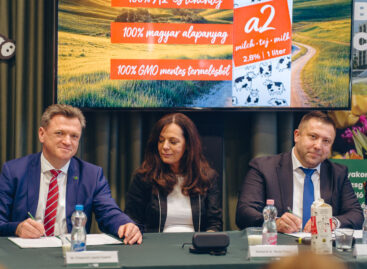Arabica coffee in the shadow of climate change – the future of production is in dange
Arabica coffee is the world’s second most valuable commodity after oil, and more than 120 million people depend on its cultivation for their livelihoods. Global demand is growing every year, especially in Asia, where more and more people are discovering the experience of drinking coffee with the expansion of the middle class. In China, for example, coffee imports rose by 30% in the first half of this year, Reuters wrote. Although the demand is almost guaranteed, the future of production is by no means so certain – the Agrárszektor points out in a recent article.

The transition to regenerative agriculture involves a large investment
Climate change poses one of the biggest challenges for coffee producers. Due to rising temperatures, unpredictable rains and extreme weather phenomena, the areas suitable for coffee production may decrease by up to 50% by 2050. Arabica coffee, which is the highest quality coffee, is particularly sensitive to temperature changes, as its ideal growing environment is between 18-23 degrees Celsius and requires an altitude of 1000-2000 meters. Brazil, which accounts for almost half of the world’s coffee production, is particularly vulnerable to this threat. The Cerrado Mineiro region, where coffee plantations are located at an altitude of 900-1250 meters, is already at the limit of viability.
In response to climate challenges, players in the coffee industry are increasingly turning to regenerative agriculture. Regenerative farming aims to sustainably increase crop yields while maintaining soil health and restoring natural ecosystems. Marcelo Montanari, a Brazilian coffee grower, has been using these techniques on his 250-hectare farm for ten years, drastically reducing the use of chemical fertilizers and pesticides. In his farm, exceeding the requirements of the forest law, 36% of the land area is covered with natural vegetation, and among the plantations he planted native trees, such as mahogany. These trees not only provide shade, but also help the soil retain water during dry periods. Montanari’s farm has enough water for 30 days, which is much more than neighboring farms using traditional methods.
Related news
A cup of creativity…
🎧 Hallgasd a cikket: Lejátszás Szünet Folytatás Leállítás Nyelv: Auto…
Read more >Related news
Tourism Business Index: improving sentiment, but the sector remains in the red
🎧 Hallgasd a cikket: Lejátszás Szünet Folytatás Leállítás Nyelv: Auto…
Read more >Levente Balogh announces a revolution in the quality dairy products market
🎧 Hallgasd a cikket: Lejátszás Szünet Folytatás Leállítás Nyelv: Auto…
Read more >









